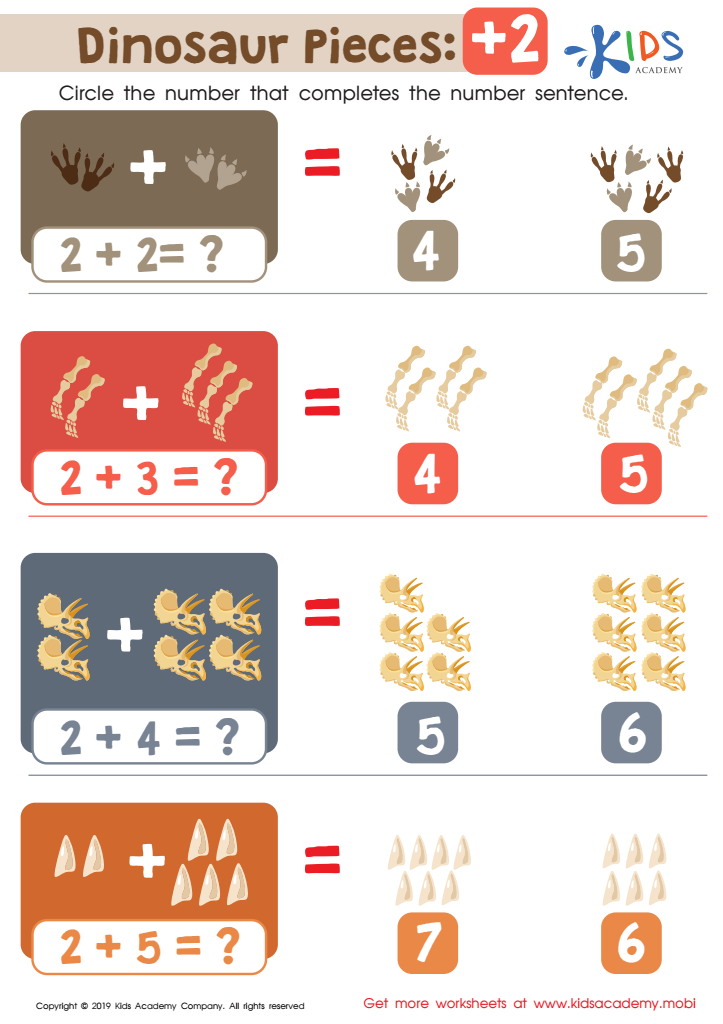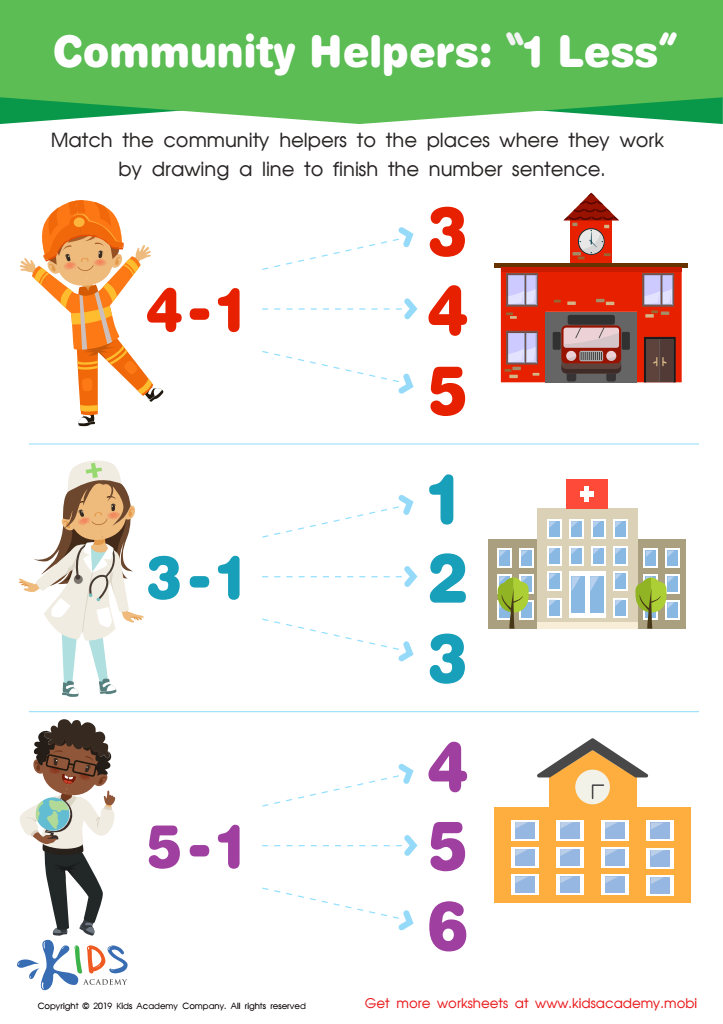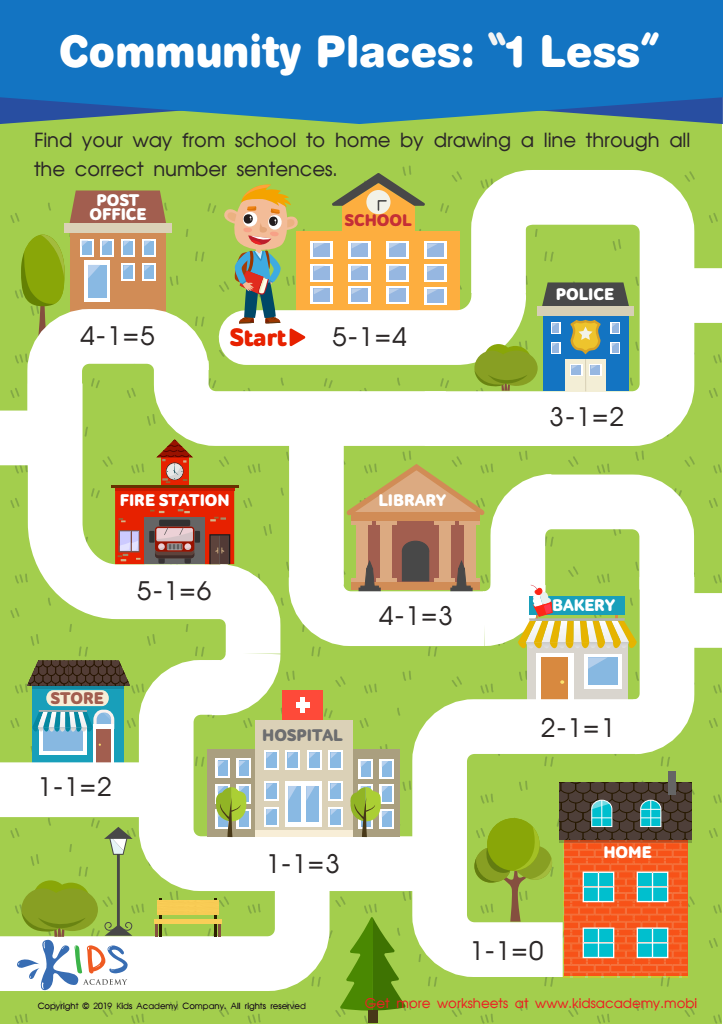Cognitive Development Addition Facts Worksheets for Ages 4-8
3 filtered results
-
From - To
Unlock your child's potential with our Cognitive Development Addition Facts Worksheets, specially designed for ages 4-8! These engaging worksheets not only teach essential addition skills but also foster cognitive growth, helping young learners develop critical thinking abilities. With a variety of creative exercises, colorful illustrations, and interactive activities, kids will strengthen their computation skills while enhancing problem-solving and memory. Our worksheets aim to make learning fun and engaging, ensuring that your child gains a solid foundation in math. Perfect for home or classroom use, these resources will inspire confidence in young mathematicians as they master addition facts effortlessly!


Dinosaur Pieces: +2 Worksheet


Community Helpers: 1 less Worksheet


Community Places: 1 Less Worksheet
Cognitive development plays a crucial role in children’s early learning, particularly in math skills like addition. For children aged 4 to 8, mastering addition facts lays the foundation for more complex mathematical concepts later on. It not only fosters numerical fluency but also promotes critical thinking and problem-solving skills. When children understand addition, they develop number sense, which is vital for their overall cognitive growth.
Parents and teachers should prioritize this developmental stage because it influences children's confidence and attitude toward math. If children are equipped with strong addition skills, they are more likely to engage positively with future math concepts, reducing anxiety often associated with the subject. Interactive activities, games, and practical applications can make learning addition fun, enhancing motivation and retention.
Additionally, hardwired connections in the brain are formed through repeated practice and reinforcement; thus, active engagement in learning addition facts can significantly support cognitive development. By taking an interest in their child's mastery of addition facts, parents and teachers can create supportive environments that not only strengthen mathematical understanding but also instill a lifelong appreciation for learning and instill a positive self-concept. Engaging in this critical area contributes to a well-rounded educational experience and paves the way for future academic success.
 Assign to My Students
Assign to My Students
















